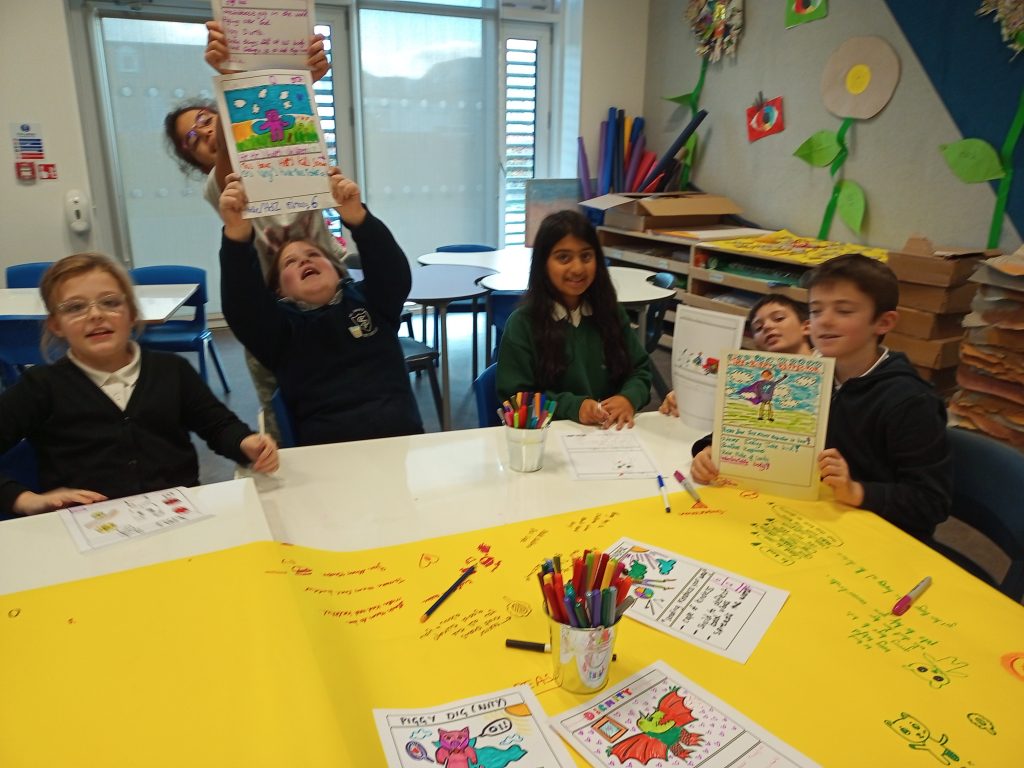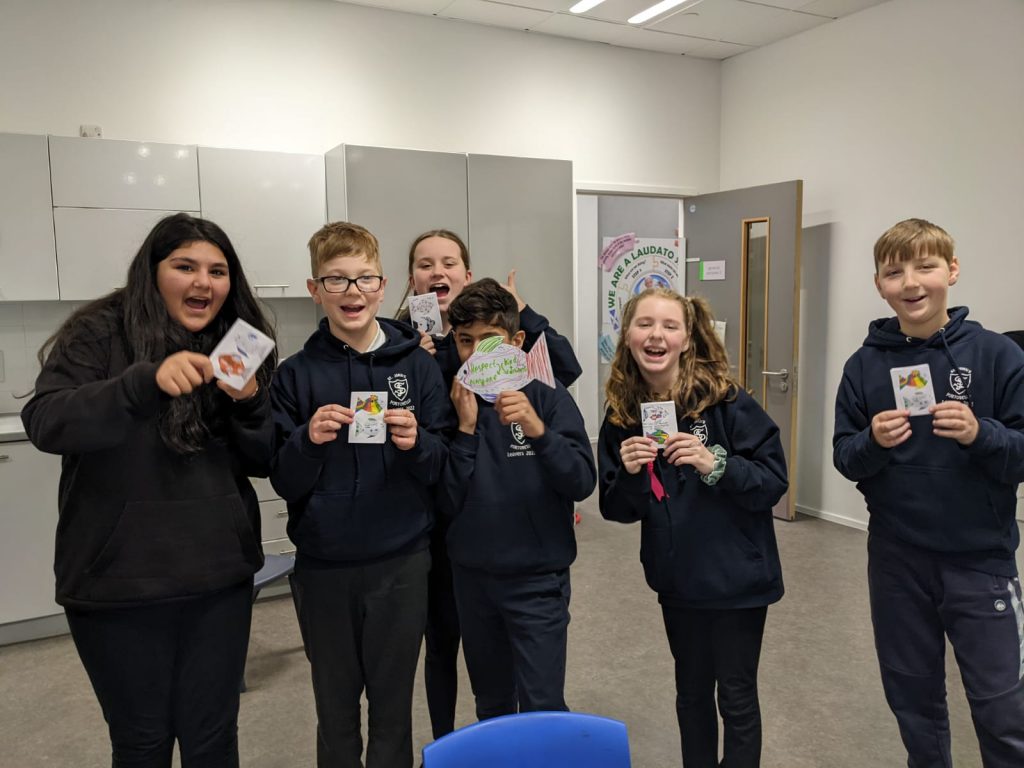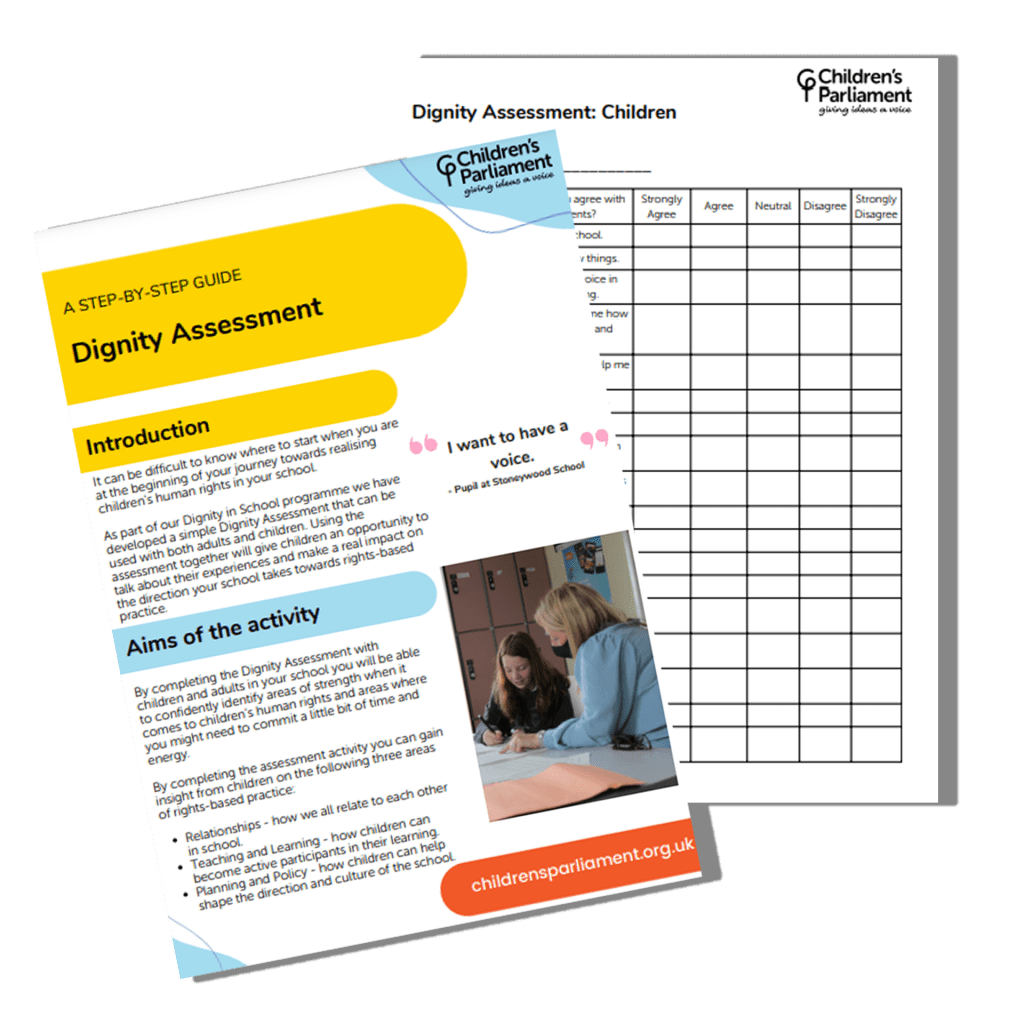Introduction
Dignity in School is an exciting opportunity to create long-lasting impactful change in your school and local area while taking the lead on the implementation of the UNCRC.
Children’s voices are at the heart of everything we do! Pupils and adults work collaboratively through a rights-based practice involving play and creativity to ensure that the UNCRC and Dignity are fully embedded in their school and community.
We are committed to making everyone feel unique, important and special in the process while fostering confidence, skills development and creating a strong sense of agency and ownership over the project you choose to realise. Dignity in School is designed to improve relationships as well as the teaching and learning experience.
This includes;
• School improvement plans,
• Policies,
• Playground transformations,
• Residencies,
• Community events and engagement,
• Artistic ventures (plays, photography exhibition, performances, etc),
• Participation in government consultations and with your local council.
The Dignity in School team supports you every step of the way, providing a bespoke approach that suits your school needs and ambitions.
Embark on the Dignity journey now and become an actor of change!

The programme
Dignity in School is working with a wide range of partners (primary and secondary schools, local authorities, Higher Education, Third Sector organisations, Scottish Government) to ensure that each child in Scotland knows and has access to their rights while being championed and supported by adults in their local community.
Our practice revolves around a collaborative play and rights-based approach delivering high quality custom projects using creativity and the arts. Children’s voices are at the heart of Dignity in School!
A children’s human rights-based approach can:
- Improve relationships
- Improve teaching and learning
- Improve school planning and policies
We are now in our third year of the Dignity in School programme and our network of schools has considerable expanded: from Edinburgh and Aberdeen to core clusters in Clackmannanshire and Dundee. We have made connections with secondary schools to explore the transition between primary and secondary schools in terms of children’s rights. We are also currently exploring a residency model that will see the Dignity in School team being embedded in a school for a week to deliver a targeted programme of activities in key locations (Stranraer, Angus and Glasgow).

What is human Dignity?
Every human being is unique, important and special. We call this human dignity. Human dignity underpins all children’s human rights.
Respect for human dignity means that we should be friendly and kind to others and it is wrong to hurt other people or make them feel bad about themselves.
No matter how others treat you, they never have the right to take your human dignity away.
“Dignity is kindness and love. We have the right to dignity because I am human. Dignity means to me a lot because it means to respect each other. You feel dignity when you are talking, and people listen to you.” – Member of Children’s Parliament
When you learn what human dignity means to you, you are less likely to accept when other people hurt, discriminate or put someone down.
Why is human dignity at the heart of our work?
All human rights treaties help us understand that: “All human beings are born free and equal in dignity and rights.”
When children talk about what enhances their human dignity they talk about playing, having a cuddle, making someone proud, being good at something, helping someone else. They also say that human dignity is undermined when they are left out, shouted at, when they are frightened, hurt or bullied. As we deepen understanding about children’s human rights, both children and adults begin to understand that all children have a right to experiences and relationships which build and bolster their human dignity.
Philosopher Martha Nussbaum says that to understand a life lived with dignity we need to reflect on what the individual is actually able to do and to be. Thinking about the experience of school and learning, when adults and children put human dignity at the heart of everyday experiences we will know we are making rights real.
All about UNCRC Incorporation
The United Nations Convention on the Rights of the Child
The UNCRC is a legally-binding international agreement setting out the civil, political, economic, social and cultural rights of every child.
It applies to every child from birth to 18, regardless of their race, religion, abilities or family circumstances.
The UNCRC comprises of 54 articles. These articles are universal, unconditional, inherent, inalienable and indivisible.

UNCRC incorporation in Scotland
On 16th March 2021 Scottish Parliament unanimously voted to incorporate the UNCRC into Scots law. Once it has made its way through the legal procedure it will become incorporated into domestic law.
What does this mean?
Incorporation gives more power to the UNCRC. It will empower children to know about their rights and seek redress when their rights are infringed. Implementing the UNCRC will support a culture change in Scotland that ensures children are valued, loved and respected.
When the UNCRC passes into law it will mean that Scottish Government and duty bearers can be taken to court if they fail to uphold the UNCRC.
Begin your Rights Based Journey
This is a simple self-assessment tool that can be used with both adults and children in school to help you discover your strengths and areas that may need a bit more support when it comes to a human rights approach.
The tool involves two questionnaires, one for adults and one for children. It will guide you through how to carry out the questionnaires, how to analyse your results and what your next steps could be as a result.



